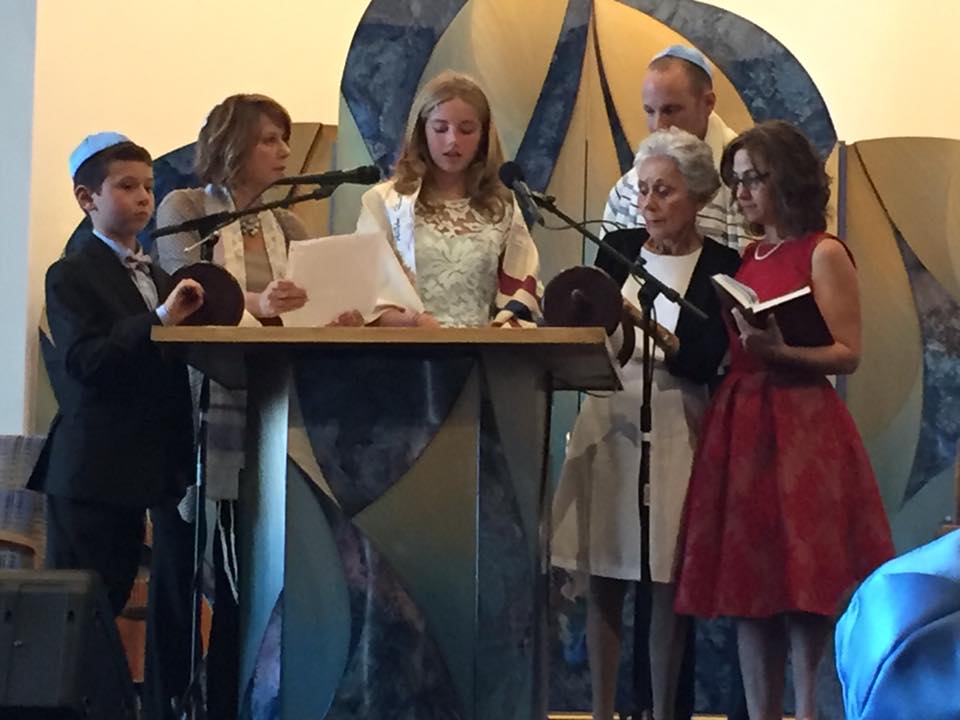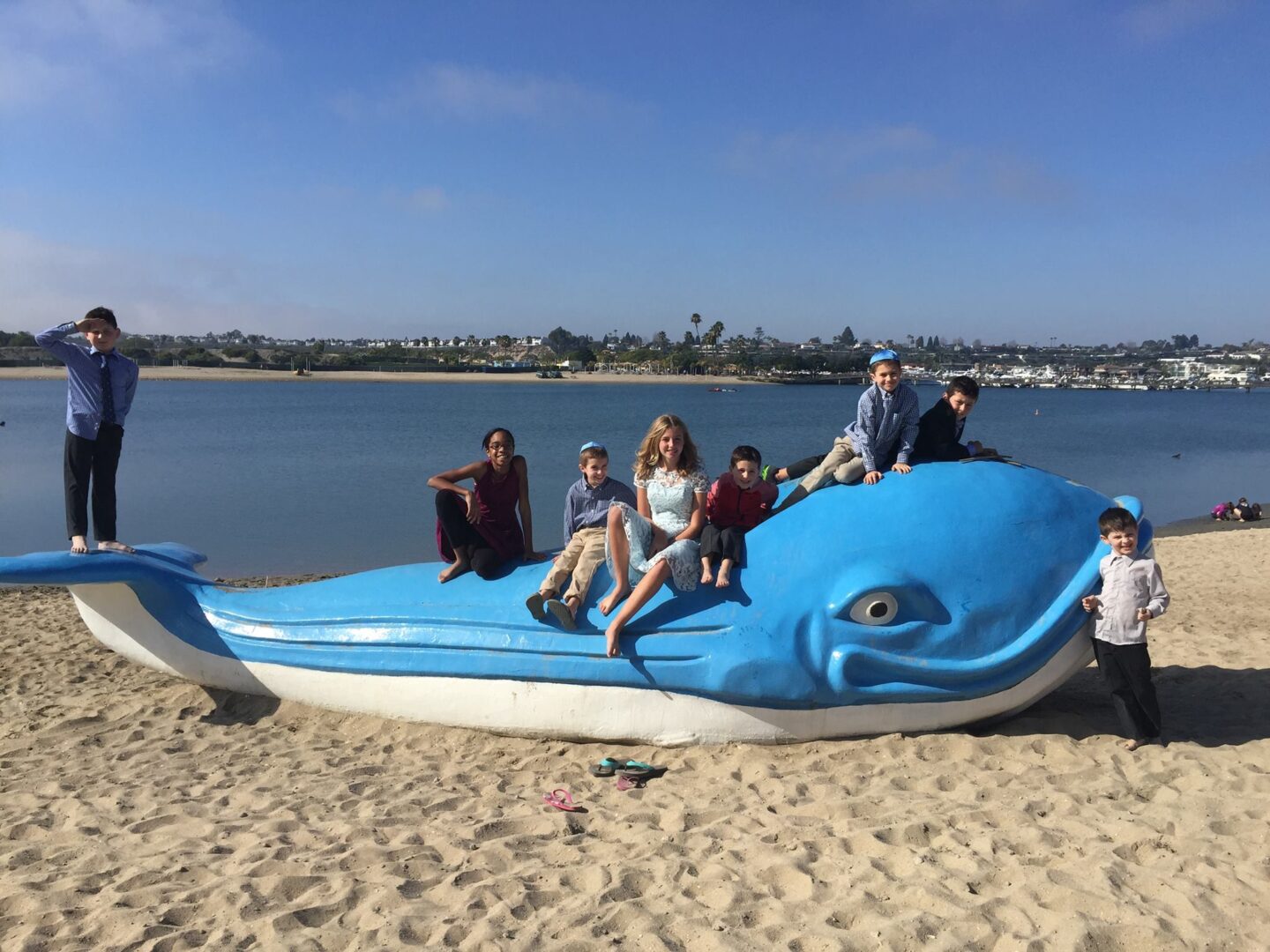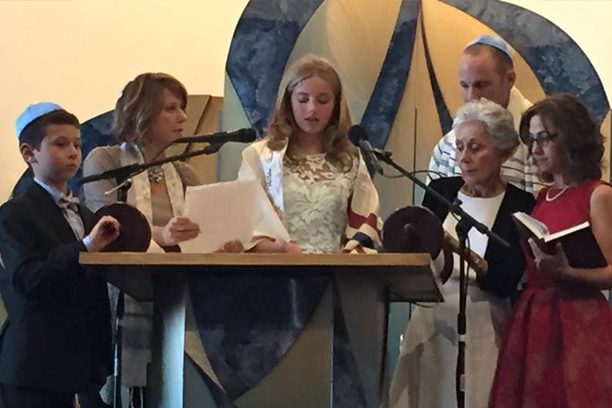
I’m Jewish but not religious. Leaning toward agnostic, but hopeful I’m wrong, I’m more like Jew-ish when it comes to following the laws of the Bible. However, I still have a strong Jewish identity. To me, being Jewish is like being West Indian or Irish. It’s more of a culture.
I went to Hebrew school to learn prayers and songs and stories of the Jewish people. I hated it. We all hated it because it was foreign and boring. I learned to read a language in words only. No one taught me what any of it meant. After 11 years of religious education the only words I knew how to translate from Hebrew into English were Sheket Bevakasha–“Quiet children.”
Even before I had kids I knew I wanted to raise them Jewish. And I knew I wanted my children to have Bar and Bat Mitzvahs. Despite my shoddy Jewish education I had a Bat Mitzvah, too. My parents had been recently divorced and I didn’t want a big party or event. So my mom made a lunch at the house for family and a couple of friends and then we took a trip to Israel. Although my Bat Mitzvah didn’t feel like an especially religious moment in my life it was deeply important to connect me forever to the Jewish people. I had to learn to really read Hebrew. I had to learn the prayers that my people had been saying before and after the Torah reading for centuries. It was my first big accomplishment.
When my daughter was six we enrolled her in Hebrew school. This was the precursor to the Bat Mitzvah. Over the years she often loved and then hated Hebrew school for all the same reasons I did. And even though I could totally relate it became non-negotiable. She would learn about her people and she would have a Bat Mitzvah.
This past weekend was the culmination of her Jewish education, her Bat Mitzvah. Since we recently moved across the country we figured we would have the ceremony in the temple and celebrate on a very small scale with just our immediate family. But it ended up being so much more than that.
Family from New York, Florida and Chicago made the trip. In attendance were first cousins and second cousins and third cousins. We had parents and grandparents and even great grandparents there. Some of our closest friends and neighbors also made it to the event. Our immediate family extended into the vast village of people who helped raise my daughter.
Every single thing for the weekend turned out perfectly. The weather held up despite the threats of an El Niño. No one got sick. The service and party went off without a hitch. Kids ran around barefoot in the sand. Girlfriends from school danced around and made silly faces for the photo booth. Adults gushed about how personal the rabbi made the service and about the cantor’s voice and about my daughter’s maturity.
 In the end none of that really matters. The most meaningful moment in the entire weekend of festivities was when my daughter read her Torah portion standing on the bema with her 96-year-old great grandmother at her side. There was something about the continuity of the ritual that hit home for me. I don’t care if my daughter continues her Jewish education. I don’t really care if she visits Israel for her birthright trip. She now knows enough to enter any synagogue from Venice to Argentina to Russia and despite a fundamental language barrier she can still participate in the service in the language of her people.
In the end none of that really matters. The most meaningful moment in the entire weekend of festivities was when my daughter read her Torah portion standing on the bema with her 96-year-old great grandmother at her side. There was something about the continuity of the ritual that hit home for me. I don’t care if my daughter continues her Jewish education. I don’t really care if she visits Israel for her birthright trip. She now knows enough to enter any synagogue from Venice to Argentina to Russia and despite a fundamental language barrier she can still participate in the service in the language of her people.
Our home will still be sort of Jew-ish. We will celebrate all the holidays and continue traditions such as having a bris or the Passover Seder but none of us is particularly religious about those rituals. We do them because our people do them. I hope my daughter learned that this weekend and it connects her to the Jewish people for the rest of her life and the lives of her children and grandchildren and great grandchildren. I can’t explain why but that’s important to me.

